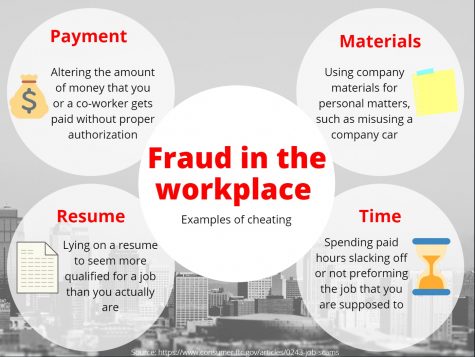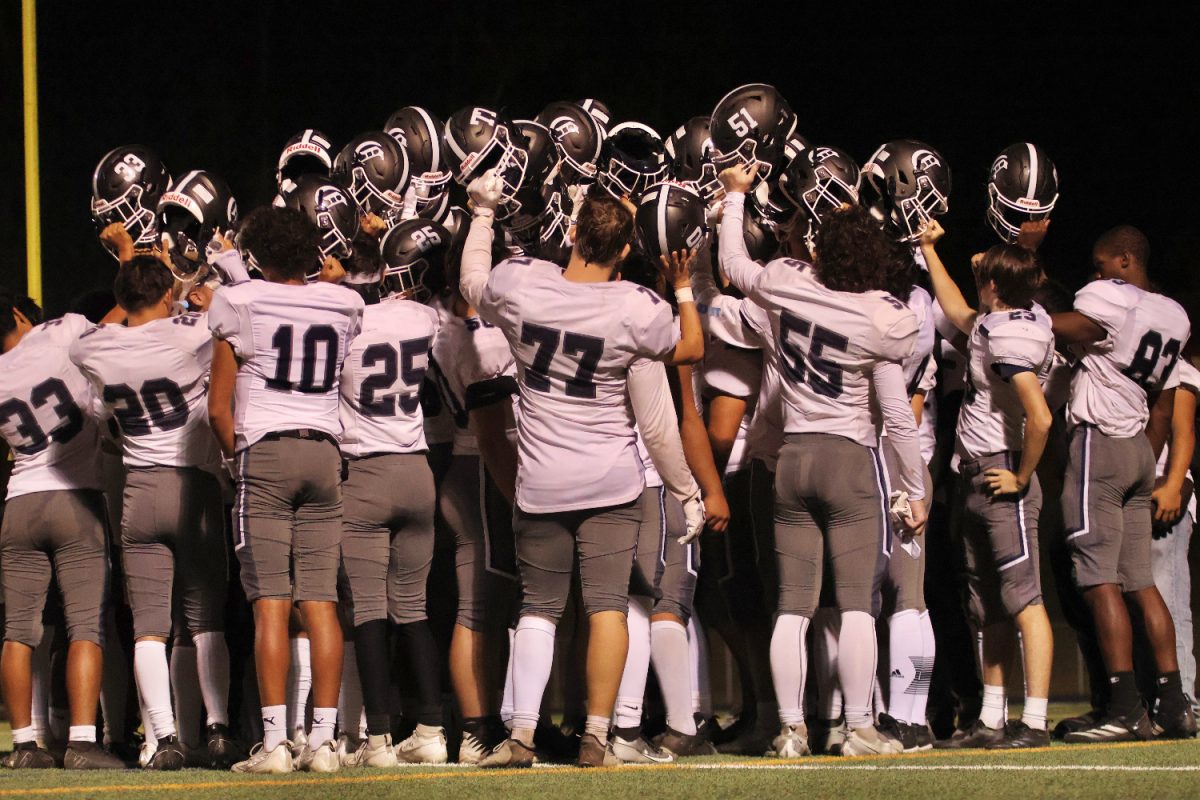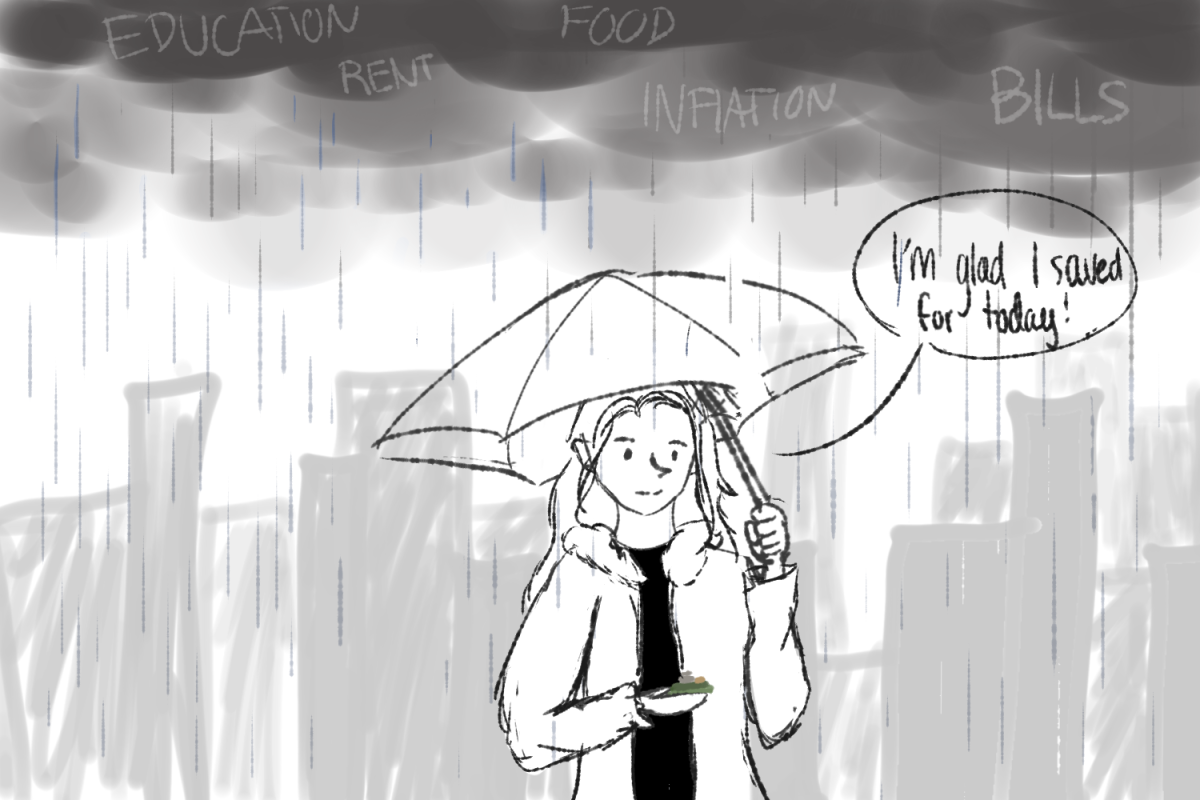High school is a period in which teenagers can express their free-spirited attitudes towards life and ready themselves for the “real world.”
Students party and spend time together before they depart for college, they go to football games and get their faces painted and cheer when their team scores, they go to dances like prom, and some even experience their first love.
Most importantly, they get to be kids for the last time.
And while they are still kids, many are willing to do anything to “make the grade,” including cheating, lying, and taking shortcuts.
Many feel the pressure from their parents to succeed and be the best student that they can be, even if they risk their integrity.
In a study conducted by John Hopkins University of 800 families, 92% of parents stated that it was important for their children to excel in school. Over half of those parents (56%) defined their children’s academic success as performing better than other students, being admitted into college, and being employed in a high-status job.
Even larger than that, 73% of parents stated that it was important for their child to go to a top-level college, and 81% believed that their child should be successful in their job.
Some parents view the behavior of students in a similar way. Students tell their parents what grade they got on a test, but less often tell them that they got the grade through cheating. This may trick the parents into believing that their student is succeeding in school.
For most students, feeling respected and trusted by their parents is very important. Yet, for many, the way in which they gain that respect does not matter.
“My parents trust that they can rely on me and it makes me feel better about myself […] It would be a lot harder [if my parents did not trust me] because I rely on them for a lot,” said Naomi Lila, a junior.
Methods that students use can help them get ahead if they do not get caught. Though it can be difficult for teachers to intercept students who choose this method, they are aware of students who cheat and recognize that it is not beneficial in the long run.
“If you cheat and don’t get caught, you might convince yourself it is a viable option and return to it again, even frequently, thereby increasing the odds that you will get caught. Ultimately, you can’t cheat all the time, so it will eventually come out that you don’t know what you are supposed to know, and you will pay the penalty then,” said Gregory Schoenstein, a history teacher at Carlmont.
There are many different ways of cheating or plagiarizing during an exam.
“One time, I wrote some formulas down on like the cover of my calculator for a math test,” said Ryan Lewis*, a sophomore.
Finding creative ways to hide cheat sheets helps students avoid being found out by teachers.
“Sometimes during tests, what I’ll do is I’ll tend to actually pop out my phone. During French, especially you know, we’ve all done it once or twice, the slight phone check,” said Simon Evans*, a sophomore.
Many students have recognized the use of phones to cheat during tests.
“Sometimes, in class, students can cheat by sneaking their phones out. I think I have seen that a lot of time,” said, Nikhila Raman, a sophomore.
Despite the efforts of teachers to prevent the usage of phones during a test, students will still find a way to sneak answers on their devices. In particular for language tests, Google Translate has become a major tool for students to cheat.
“On computer tests, I tend to copy and paste, so I highlight the question, right-click, and go to search on Google. That way you can’t hear my keyboard clicking, because if the keyboard’s clicking and it’s a multiple-choice test, teachers are going to figure it out … And for my biology tests, there’s a lot of tests with the answers on Quizlet, and I am able to get a lot of answers that way,” Evans said.
Programs such as Quizlet, Slader, and LitCharts are easy ways for students to access academic information online. Students can use these to get answers for homework questions or to find solutions for a test.
“Another thing I do is actually wait until my teacher gives me extra time to do the test. They sometimes end up sending me outside, I can cheat on the test since they can’t supervise you,” Evans said.
Most students are more likely to cheat if they are unsupervised because they do not feel the pressure of the teacher watching them; however, many teachers agree that students gain nothing from looking up the answers.
“You would be better off having integrity and taking your medicine for not being prepared or better organized and learn from that. You’ll become a better student, which will serve you much better in life,” Schoenstein said.
Students feel the consequences of cheating as stated in their school’s respective Academic Integrity Policies.
When a student is caught plagiarizing or cheating on a school assignment, their teacher contacts the administrative vice principal (AVP). From there, the AVP determines if the student violated Education Code. If the student violated the code, then the AVP contacts the student’s parents and records the violation in the student’s file.
Some consequences include detention, school or community service, and suspension from extracurricular activities, such as sports. In serious cases, students can be suspended.
“It is also important to understand that when you get caught cheating, you damage your reputation and mark yourself as a dishonest person. You will constantly have to prove that you are no longer being dishonest. It will be hard to convince people to trust you again, and you will be watched very closely,” Schoenstein said.
At the forefront of most high schoolers’ minds, there is college — the daunting experience with a lengthy application process that determines their future. The reliance on grades for getting into colleges pressures students into doing anything and everything that they possibly can to get into an acceptable college.

Jeopardizing the chances of getting into a school through cheating is a risk that some students are willing to take.
“The likelihood and frequency of cheating are probably driven by an individual student’s estimate of the risk-versus-reward tradeoff,” Schoenstein said. “Students are more afraid of not doing well, or of failing, than they were of the consequences for getting caught.”
Regarding letters of recommendation, there is no district policy; it is up to the teachers themselves to rescind letters for students.
“Teachers will refuse to write letters of recommendation for you, or rescind letters already written, which could impact your ability to get into certain colleges,” Schoenstein said.
According to the World Health Organization, the adolescent years of a student are one of the most influential times for their development. Teens mature physiologically, developing a lasting personality that is defined by their environment.
If cheating is part of that environment, then it has the potential to leave a lasting impact on students.
*This name has been changed to protect the anonymity of the source.























